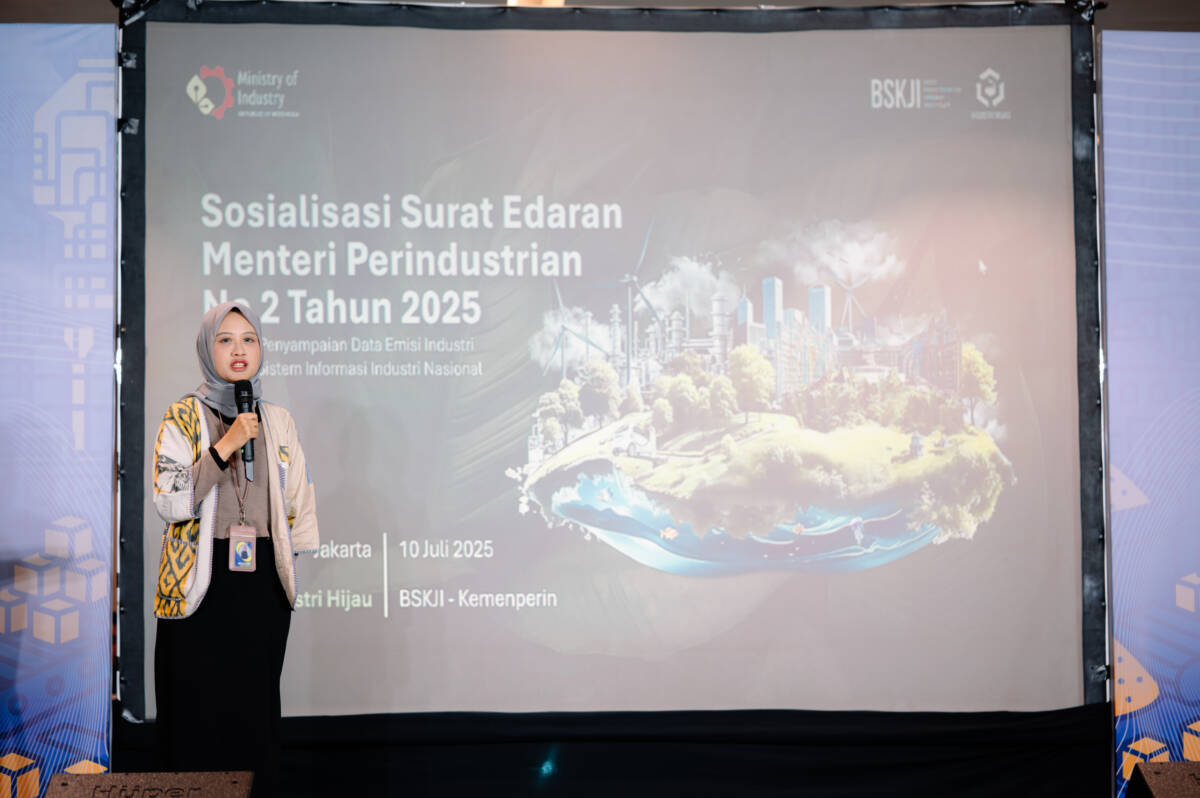Jakarta, July 10, 2025 – The Indonesian government, through the Ministry of Industry, continues to encourage the industrial sector to transform to become more environmentally friendly. One concrete step is to implement a policy of gradual industrial emission reductions, as stipulated in Circular Letter of the Minister of Industry No. 2 of 2025. This was stated by Istifari Azizah, the First Expert Environmental Impact Controller at the Green Industry Center, Ministry of Industry, during the Emission Reduction Policy Discussion and Industrial Emission Calculation Workshop: Sugar and Cooking Oil Processing Industry, organized by IESR on Thursday (July 10).
“Through this circular, industrial players are required to submit industrial emissions data, both air pollutant emissions and greenhouse gas (GHG) emissions, through the National Industrial Information System (SIINas). The reporting schedule has also been regulated. For example, air pollutant data for January–June must be reported no later than July 10 of the relevant year. Then, air pollutant data for July–December must be submitted no later than January 10 of the following year, GHG emissions data must be reported no later than April 10 of the following year, and for 2023–2024, all emissions data must be submitted no later than July 10, 2025,” said Istifari Azizah.
Istifari added that this reporting is mandatory for medium and large industries, but reporting is voluntary for small industries.
To achieve lower emissions targets, the government has drafted a Ministerial Regulation of the Industry (Permenperin) that covers three main stages: initial control, where air pollutant emissions must meet Environmental Quality Standards (BML) and GHG emissions are limited using a single threshold approach, the carbon market integration stage, and national standardization.
“To ensure that all sectors understand and are able to implement this policy, the government has also developed an intensive outreach strategy, including the one currently being held by the IESR. This activity is carried out through various workshops targeting priority industrial subsectors, such as cement, fertilizer, metal, chemical, ceramic and glass, food and beverage, textile, and transportation equipment,” said Istifari Azizah.
Istifari emphasized that this policy is not merely an administrative regulation, but part of a broader strategy for decarbonizing the national industrial sector. This strategy includes a roadmap for decarbonizing the industrial sector, the Carbon Economic Value (NEK) Mechanism for the industrial sector, emission reduction policies, implementation of a circular economy, carbon capture and utilization, and the implementation of green industry standards. The nine priority industrial subsectors are at the forefront of this transformation, aiming to create a greener, more efficient, and globally competitive Indonesian industrial sector.
In addition to supporting the dissemination of the Minister of Industry’s Circular Letter No. 2 of 2025, the Emission Reduction Policy Discussion and Industrial Emission Calculation Workshop: Sugar and Cooking Oil Processing Industry was held to also improve the technical capabilities of the sugar and cooking oil industry and industry associations to conduct independent emission audits and discuss directly with experts regarding emission reduction mitigation efforts that can be carried out by the sugar and cooking oil industries. These include increasing equipment efficiency, replacing boiler technology and fuel with more environmentally friendly ones, and utilizing exhaust gases rich in carbon dioxide for the carbonation process in the refined sugar industry.

